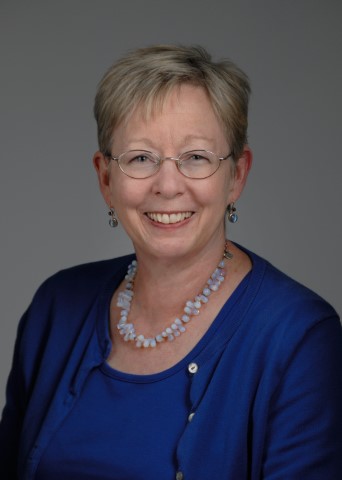
The Endocrine Society is pleased to welcome its president for 2017 — 2018, Lynnette Nieman, MD, who took office April 5. A senior investigator and chief of the Endocrinology Consultation Service at the NIH Clinical Center, her work focuses mostly on disorders of cortisol, though she has also worked on antiprogestins, leading to two commercialized products.
“I am honored to serve our members,” Nieman says, “and excited to work with our members and talented staff and CEO to develop our fourth strategic plan (SP4) to move the Society forward.”
Nieman succeeds Henry Kronenberg, MD, as the Society continues its rotation of presidents who represent its core constituencies: basic researchers, clinical researchers, and clinical practitioners. She graduated from Smith College and attended medical school at SUNY Buffalo. Nieman has been with the NIH since 1982 and in that time she has authored or co-authored more than 200 papers and won numerous awards, including the NIH Director’s Award, the NIH Clinical Teacher of the Year Award, and the Endocrine Society’s Distinguished Physician award. “I’ve been lucky to have a lot of different experiences related to investigation and its oversight,” she says, “including 11 years as the clinical director of NICHD and five years as the director of the (NIH Intramural) Office of Human Subjects research. I’m currently working on development of standard templates for protocols within the intramural program.”
Nieman’s interest in endocrinology stems from her love of complex systems and solving puzzles, as well as the appeal of the complex physiologic and cellular workings of the endocrine system. She says she thinks most physicians choose fields that mesh with their personalities. “I advise our fellows to go into a field that seems exciting, and that sometimes reading JCEM or other journals can help figure that out,” she says. “Also, recognizing serendipity and opportunities often pulls us one way or the other. For me, I was drawn to the titles on reproduction and cortisol, and fortuitously, RU486 (mifepristone) had recently been developed when I joined the NIH as a fellow. From then on I had a schizophrenic career that ‘focused’ on cortisol and progesterone.”
“I am honored to serve our members and excited to work with our members and talented staff and CEO to develop our fourth strategic plan (SP4) to move the Society forward.”
“It was eye-opening to me that we could improve diagnosis, change treatments, and make a big difference in people’s lives through our research,” Nieman continues. “Recently I chose to work on human subjects policy to hopefully streamline and facilitate the ability of other clinical investigators to carry on their important work. I worry that we are losing clinical investigators from the field.”
Nieman first joined the Society in the 1980s, after her mentor in Buffalo, Pepper Davis, and the “NIH gurus” recommended membership. Her first annual meeting was in 1983, and since then, she has been an extremely active member. “I became a member of the ‘Membership Committee’ (no longer extant) sometime in the 1980s,” she says. “From there, I served on a number of other committees, chaired two guidelines, and participated in a number of previous strategic plans. That’s my ‘involvement’ from a statistical perspective; from a personal perspective I have made many friends, benefited from the wisdom of so many colleagues, and had the intellectual pleasure of thinking about how things work.”
“Recently I chose to work on human subjects policy to hopefully streamline and facilitate the ability of other clinical investigators to carry on their important work. I worry that we are losing clinical investigators from the field.”
Nieman says she has two main goals for her presidency: First, to have an inclusive process for the development of SP4 goals that will meet many needs of the Society’s diverse and global membership. Second, to consider how we can individually, and as a Society, extend our influence — whether by extending our basic research findings to other fields, translating it to clinical investigation, commercializing our results, mentoring others, or educating the public about what we do.
“I’d like to see the Society become an umbrella organization that interacts in new ways with other groups, organizations, government bodies and patient groups,” Nieman says. “Not sure exactly how that will ‘look’ but I think we will have overarching goals in this direction with SP4.”

